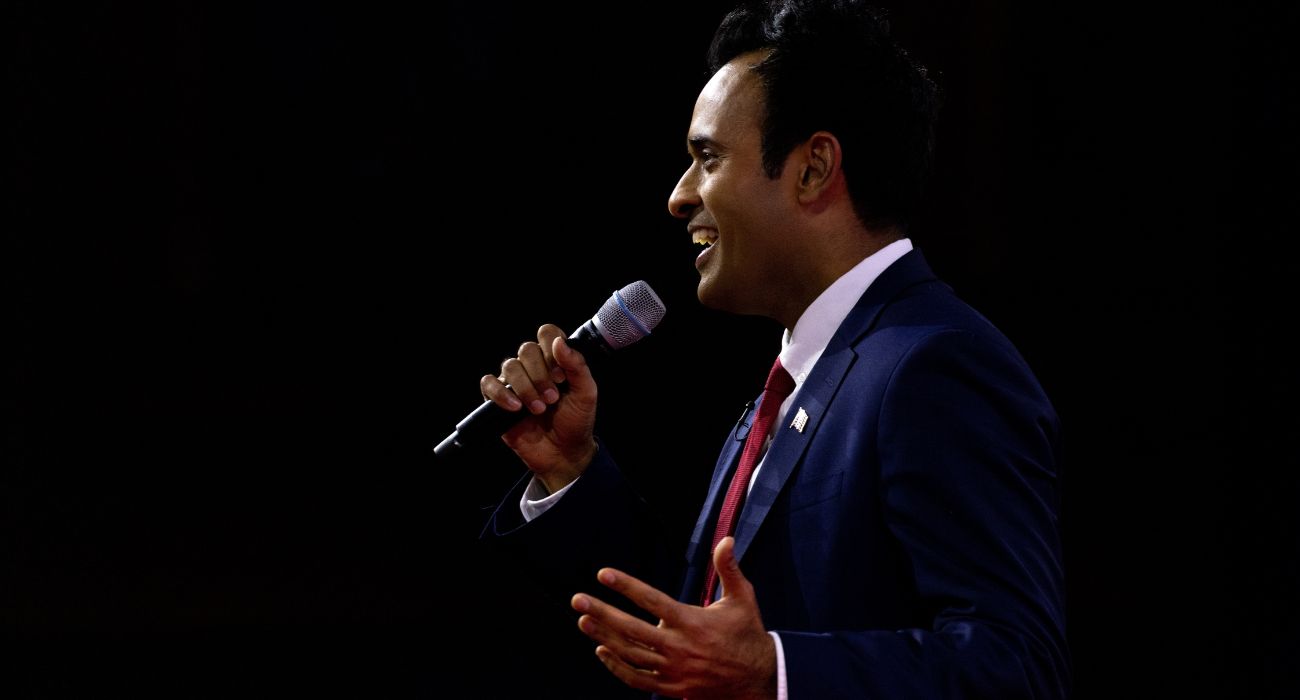Presidential candidate Vivek Ramaswamy touted what he calls a “realist” foreign policy that emphasizes recognizing other countries’ spheres of influence on Thursday.
Speaking before an audience at the Richard Nixon Presidential Library, Ramaswamy expounded on his foreign policy platform, which he called a “modern Monroe Doctrine.”
The Monroe Doctrine was articulated by President James Monroe in 1823 and asserted that great-power nations should have spheres of influence within their own geographic regions.
“The North Star of my foreign policy will be the modern Monroe Doctrine combined with Nixon’s doctrine,” he explained, describing President Nixon’s doctrine as the requirement that other nations be responsible for their own national security.
In that vein, Ramaswamy’s so-called doctrine would seemingly end most American entanglements in Russia’s sphere, including Ukraine, in return for Russia ending its military presence in the Western hemisphere and ending its alliance with China.
Ramaswamy pledged that one of his first acts if he were to be elected president would be to end the Ukraine war, reasoning that the U.S. cannot seek to enforce the border integrity of Ukraine when it cannot do the same on the home front, referring to the unlawful migrants entering the nation in the South.
Taking China to task, Ramaswamy said he would not tolerate China’s spy balloons over the U.S., its spy bases in Cuba, or the illicit drugs it manufactures for distribution by Mexican drug cartels, as all of these violate the U.S. sphere of influence.
“The Russia-China alliance represents the single greatest military threat that we face in the U.S. today,” declared Ramaswamy.
He postulated that the U.S. response would need to be similar to Nixon pulling China out of a Cold War alliance with the U.S.’s chief rival, the Soviet Union. However, this time, the greater threat is China, according to Ramaswamy, and therefore, it would benefit U.S. interests to end hostilities with Russia in order to contain China.
“Putin is the new Mao,” he said. “And while we have a foreign policy establishment in both parties including Biden who tries to supplicate to China to get Xi Jinping to drop Vladimir Putin, what we really need to be doing is getting Vladimir Putin to drop Xi Jinping.”
Ramaswamy acknowledged the concessions that he would make to Russia would be considered victories for Putin, as his critics have pointed out.
Such submissions include Russia keeping the Ukrainian territory it currently occupies — “We will freeze the current lines of control.” — as well as no further consideration of Ukraine being admitted to NATO. However, Ramaswamy said it would be worth it because it would benefit the U.S. even more so.
“That’s a big win for Putin. I’ll admit that. You’re not supposed to say you give Putin big wins,” acknowledged Ramaswamy, adding, “But there’s a bigger win for us” in the concessions required of Russia.
Ramaswamy defended that point later on CNN when he told host Jim Acosta, “Our goal should not be for Putin to lose. Our goal should be for America to win. That’s what we have forgotten in this country.”
During my interview with Ramaswamy, he reiterated his position that he would allow Putin to keep parts of Ukraine, block Ukraine from joining NATO and even visit Putin in Moscow. The GOP contender added: “Our goal should not be for Putin to lose.” pic.twitter.com/80jdtV3XBj
— Jim Acosta (@Acosta) August 18, 2023
Ramaswamy also addressed the tensions over the breakaway island nation of Taiwan, which China claims. He expressed his belief that by pulling Russia out of “China’s camp” and getting India to commit to helping blockade China if needed, China would be deterred from acting militarily to take over Taiwan, as the U.S. will ostensibly no longer be engaged on two fronts.
Notably, Ramaswamy cited his own ethnic Indian heritage as the reason he believes he could get India to agree to such a security pact with the U.S.
“If I’m not gonna get that done by the end of my first term I would consider that a personal failure … on an ethnic count,” he said, chuckling.
He also said Taiwan could be better defended by arming its civilian population with firearms, which Ramaswamy described as an exportation of the Second Amendment in a display of “what American exceptionalism is about.”






